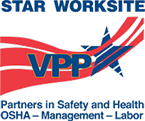Is Your Rescue Team Ready?
Guidance for improving and maintaining rescue team proficiency...
.jpg) We all want to succeed, no matter what we are doing. And success is always better than the alternatives…whether a mediocre performance or worse yet, failure. When it comes to rescue, all of a sudden, the difference between success and failure takes on much greater significance.Not only are the lives of the rescue subjects held in the balance, but also the rescuers. Multiple risks are involved with technical rescue and failure may cost the rescuers mightily, and this has been proven too many times. There are many things, however, that rescuers can do to help improve their chances of success, and that's what we will talk about here.
We all want to succeed, no matter what we are doing. And success is always better than the alternatives…whether a mediocre performance or worse yet, failure. When it comes to rescue, all of a sudden, the difference between success and failure takes on much greater significance.Not only are the lives of the rescue subjects held in the balance, but also the rescuers. Multiple risks are involved with technical rescue and failure may cost the rescuers mightily, and this has been proven too many times. There are many things, however, that rescuers can do to help improve their chances of success, and that's what we will talk about here. We have found that the one thing that seems to be a lagging factor is a "lack of proficiency" in performing the required skills either as individuals or as a team. Having rescue preplans, the newest and best equipment, sufficient manning, and reliable communications are all pieces of the puzzle. But all of that becomes nothing more than window-dressing if the team or individuals on the team are unable to perform their duties safely and effectively. This is such an important consideration that several regulations and standards make a point to remind us that proficiency is a high-interest issue.
For instance, OSHA 1910.146 paragraph K and Appendix F, as well as 1926.1211, require designated rescuers to practice making permit space rescues at least once every 12 months by means of simulated rescue operations in which they remove dummies, manikins, or actual persons from the actual permit spaces or from representative permit spaces. It is our position that this does not even come close to the training time needed to maintain an appropriate level of proficiency.
Additionally, NFPA 1006 requires rescuers to demonstrate competency on an annual basis. One of NFPA’s recommendations is to attend workshops and seminars, read professional publications, and participate in refresher training as ways technical rescue personnel can update their knowledge and skills.
I am routinely asked how often a rescue team should practice. And they're always a bit surprised when I do not give them a hard and fast answer such as quarterly or monthly for a minimum of 4 hours. My answer is and will always be, “as often as it takes to ensure you are proficient, as individuals and as a team, to safely and effectively rescue potential victims from any situation you may be called to respond.”

You would be amazed at the spectrum of training schedules that are out there. Some teams practice on a bi-weekly basis and mix in different scenarios to ensure they will not miss any opportunities to improve their skills or to identify any gaps they may have in technique or equipment. Whereas other teams may feel that once a year is all that they need. Knowing how perishable these skills are, we tend to disagree.
It has been our experience that the teams who practice on a very regular basis and really mix it up when they design their training scenarios are the ones who perform best when they come to our facility or we go to theirs for a team performance evaluation (TPE), which can also include an individual performance evaluation (IPE), if desired. The teams and individuals that struggle most during our TPE/IPE visits are the ones that seldom train. And, even though we all call these TPE/IPE visits, we do provide tips and spot training to help correct any deficiencies observed.
But frequency is no guarantee of excellent performance. It isn’t just about the quantity of training; it must be the quality of training as well. One of the best ways to supplement in-house training is to attend third party refresher training. Or, if it has been a while since a full-on training class, by all means a more extensive and complete training package may be a great option. Roco's annual Rescue Challenge provides an excellent learning experience as well as a way to confirm the true rescue capabilities of your team.
Technical rescue skills are one of the most perishable skills I have known. Without regular practice and quality training, it is not long before the individual and team skills erode to the point of becoming a liability to the victim and to other team members.
Again, none of us wants to fail - especially on a rescue mission. A good way to avoid this is to dedicate adequate resources to training along with regular refreshers and practice drills. Prepare and practice for your "worst case" scenarios because you just never know when your team may be put to the test. Be ready!




